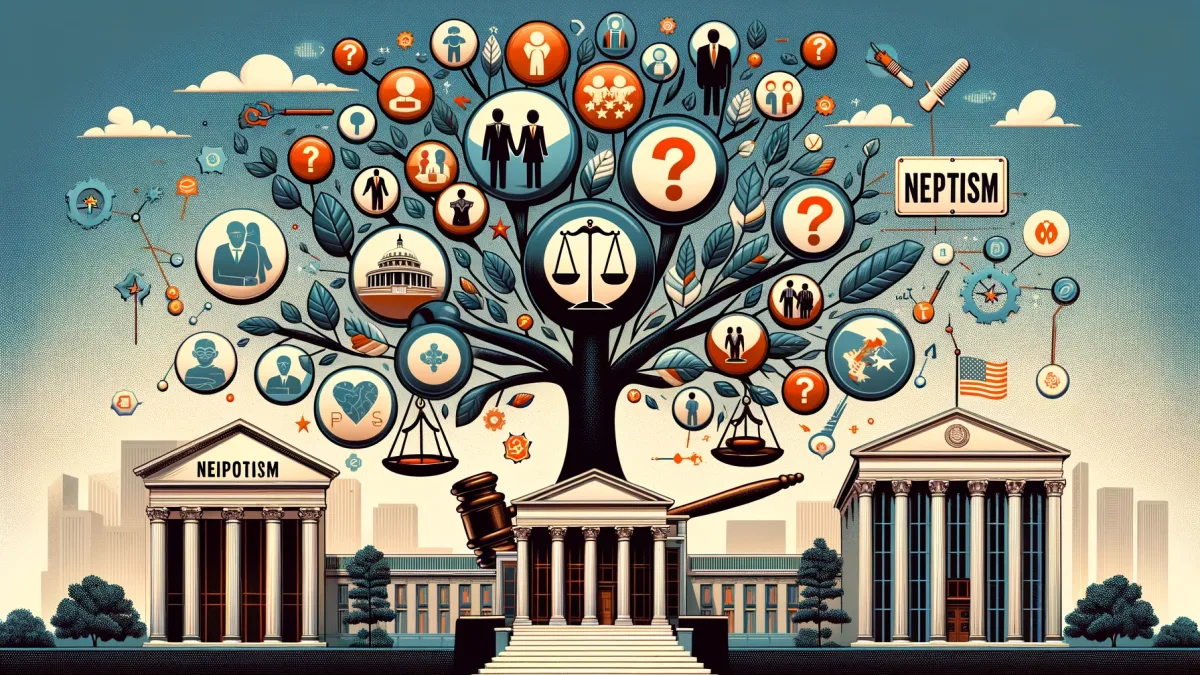Nepotism, or the practice of favoring relatives or friends by giving them jobs, is a topic of frequent discussion and concern in the United States. The legality of nepotism varies depending on whether it occurs within public (government) sectors or private businesses, as well as the specific laws and policies in place at federal, state, or local levels.
Public Sector
In the public sector, including government jobs, there are strict laws and regulations against nepotism to prevent conflicts of interest and ensure fairness in hiring practices.
Federal Anti-Nepotism Law
- The primary federal regulation against nepotism is found in Title 5, Section 3110 of the United States Code. This law prohibits federal officials from hiring, promoting, or recommending their relatives within the agency in which they are serving or over which they have authority.
- The term “relative” is defined broadly in this law to include, among others, spouses, children, parents, siblings, in-laws, and step-relatives.
State and Local Government Laws
- Beyond federal regulations, many states and local governments have their own laws against nepotism. These laws are designed to prevent the practice in state and municipal hiring processes, and their specifics can vary widely from one jurisdiction to another.
Private Sector
In the private sector, there are no federal laws that broadly prohibit nepotism. However, companies may choose to implement their own policies to prevent nepotism, motivated by concerns over conflict of interest, workplace morale, and the desire to maintain a fair work environment.
- Company Policies: It is common for businesses to have policies that regulate or discourage nepotism. These policies might limit the hiring of relatives in certain positions or require that any potential conflicts of interest be disclosed.
Ethical and Practical Considerations
While not always illegal in the private sector, nepotism can raise significant ethical and practical concerns. These include the potential for perceived or actual favoritism, impacts on employee morale, and questions about the qualifications and performance of individuals hired through nepotism.
References
- “Employment of Relatives; Restrictions” – Title 5, Section 3110 of the United States Code. https://www.law.cornell.edu/uscode/text/5/3110









Leave a Reply